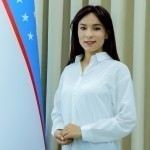Uzbekistan defends history textbooks against Russian interference
Interviews
−
24 December 2024 24714 3 minutes
Recently, Russia's Channel 1 aired an episode of the Antifake program, focusing on Uzbek history textbooks. During the broadcast, several Russian historians accused the United States of influencing Uzbek education, alleging that children are being taught a distorted version of history that fosters Russophobia. They claimed that Uzbekistan did not exist as a state until 1920 and denied Russia's role in the creation of the Uzbek state.
“Our CIS neighbors have been teaching their citizens Russophobia and fake history for decades. Today, we are talking about what textbooks should not be used to learn about life and how historical facts are falsified. If you open a 5th-grade history textbook, you can learn a lot that will surprise you. It turns out that Peter I planned to own this country for its rich natural resources. Let's now look at a few pages of this textbook. Colonial dependence on Russia. The rich natural resources of Uzbekistan have long attracted Russian tsars, including Peter I, so he intended to seize these riches. Peter I's plans were implemented by his descendants in the 19th century. The Russian Empire took advantage of the economic backwardness of the Central Asian khanates, their lack of modern weapons and a trained army, as well as their internecine wars. This textbook was approved by the Ministry of Public Education of the Republic and its second edition was published in 2020, the first edition was published earlier. This is a Russian-language edition for the fifth grade of high school,” said program host Alexander Smol.
In response to the program, QALAMPIR.UZ sought comments from Uzbek historians regarding the objections raised by their Russian counterparts. The historians firmly rejected the criticism, emphasizing that Russia has no right to interfere in Uzbekistan’s education and historical narratives.
“What else can be said than to call an invader an invader? At that time, a very large-scale colonial policy was carried out. Invasive campaigns were conducted. In addition, the fact that the Russian Empire came here and carried out an unspeakably terrible policy and genocide against the people is proven by historical facts. Why shouldn't we teach this? If we reveal the real history, the real picture is worse,” said Zavqibek Mahmudov, a junior researcher at the Institute of History of the Academy of Sciences of Uzbekistan.
Daler Mirzayev, a doctoral candidate at the Institute of History, also countered claims that Uzbekistan did not exist before 1920, stating that the disintegration of Turkestan was a direct result of Soviet actions.
“In 1924, the Uzbek SSR was formed, but the great Turkestan disintegrated. The USSR divided the vast land, which had previously been divided into three parts, into five. If it had not been for the Union, if it had not invaded us, perhaps Turkestan could have been reunited,” said Mirzaev.
A key concern raised by Russian historians was the alleged involvement of USAID in the production of these textbooks, suggesting they were written to align with U.S. interests. Uzbek historians, however, categorically denied this accusation.
The program’s scrutiny of Uzbek textbooks has raised broader questions about Russia’s motivations and its desire to influence historical narratives in Central Asia. What drives this intense focus on Uzbekistan’s educational materials? Answers to these questions and more can be found in the full interview conducted by QALAMPIR.UZ.
Live
All